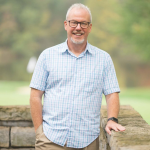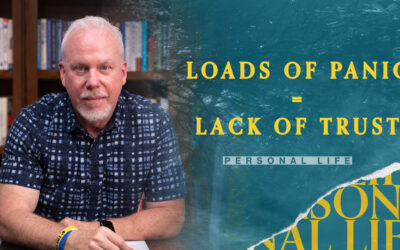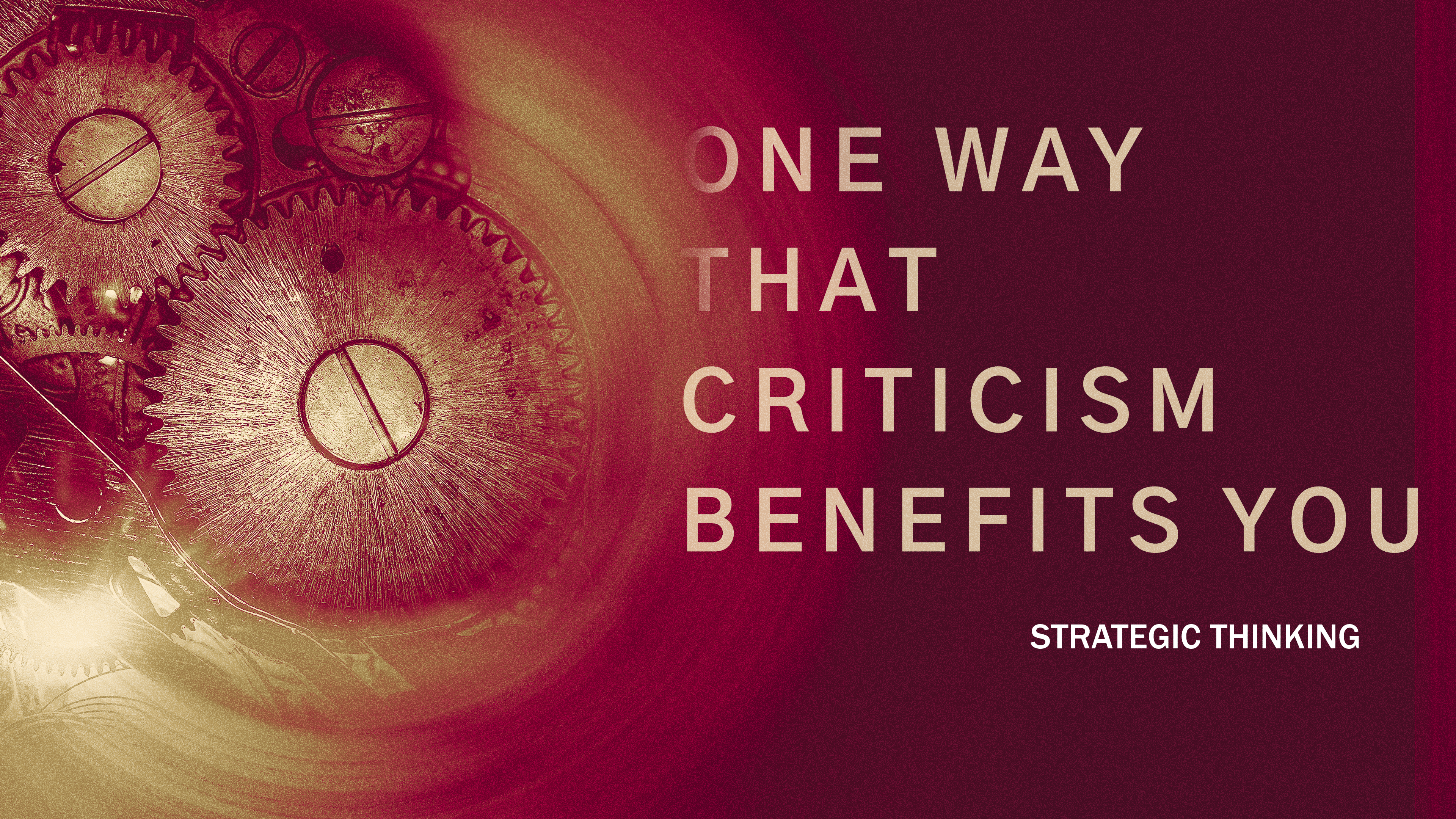Easter Week reminds us that Jesus accomplished His purpose. His final words included, “It is finished.” He said He accomplished what He came to do. Jesus’ certainty emanated from His clarity on His mission. Although He expressed it different ways, we see a clear example in Luke 19:10, “The Son of Man [as He called Himself here] came to seek and to save that which was lost.” – CSB
How will you know when it (your purpose) is finished? You cannot know unless you first know what that purpose is.
Like Jesus, clarifying and understanding why you exist unlocks a doorway leading to a life well-lived. On the other hand, if you don’t know what you want or why you are here, you can’t know if you achieve it. So, taking some time now to get a handle on your direction benefits you for years to come. It also makes sense of all the decisions you make in those years.
Although people use a number of ways to determine their life’s mission, we will address two here. These will focus your understanding of what you really want your life to produce.
Let’s look at some questions:
- Do you want to work outdoors?
- Live in a different culture?
- Go to the moon or help free people unjustly imprisoned?
The options vary wildly, just like the people on the planet do. Just considering all the options makes it seem overwhelming. So, before we share the two ways to find what your mission is, consider the following tips:
Tips to Your Personal Mission
A. Keep in mind that the purpose is yours.
It belongs to you. Embraced by you. Whatever your mom or some other influential or authoritative person told you you should be, you alone own your purpose.
B. You already fulfill a purpose each day.
Your living and breathing and moving reflect a purpose. The question is, “Are you fulfilling the purpose you want?” If you live like many people, some of your actions support what you really want, but so many others steer in a different direction that it is highly unlikely you will achieve what you desire.
C. Your personal purpose morphs over time.
Rather than being one story, your life consists of a series of chapters. As one chapter ends and another begins, your personal purpose may adjust and change. You should not only be okay with it changing, but you should also expect it. It is one good reason to capture your current thinking now, so you have a baseline to weigh future directions.
D. Write it.
Scribing words on a page (I recommend analog) deepens your understanding and forces clarity. The nuances, rhythms, and interplay of words reveal more understanding than just speaking. And, when you write, you not only feel and hear the words, you see them. Seeing the words, in addition to hearing them (by speaking) or feeling them (by writing) grants the speaker added information to make adjustments. The bandwidth for consideration widens by using more than one of your senses. Just getting it down on paper makes it seem more workable. Putting your life mission into words on a page makes it appear more like a puzzle and less like an impossibility.
“The palest ink is better than the best memory.”
– Chinese Proverb from the Qing Dynasty.
Now, let’s take a look at two ways to discover your personal mission. There are others, but today we dive into these two:
Option #1: Take out a piece of paper. I prefer a legal pad. Get your favorite pen. Write down everything you want to:
A. Be
B. Do
C. Have

Write all that comes to mind. Invest about twenty minutes or so, writing as fast as the ideas come. Don’t edit. Please don’t delete. Don’t avoid any be, do or have based on what your mom or dad or somebody else thinks. After you write all you want to be, do or have; walk away for twenty-four hours. Then, go at it again. Write any new thoughts, or thoughts you avoided the first time because you thought them too outlandish, impulsive or unrealistic. You might go at it a third time. Write everything that you want to be or do or have. Whatever you write is okay.
Once you exhaust your ideas, then begin whittling. Cut, carve, incorporate, meld and merge all those many words into a few chosen words that represent the whole. Formulate this into a single sentence of approximately 13 words. That singular sentence embodies everything you wrote without detailing it. The written sentence, your sentence, represents you.
Option #2: This one probably feels a little more radical, but it works. Since most of our hindrances are emotional, Option #2 pushes through those emotional hurdles. And, that push-through will benefit you the rest of your days. So, here it is.
Option #2: Move to a different place, preferably to another state or another culture.
Your commitment to do this refines your raison d’etre. The realization that you are moving prompts thinking you didn’t need before your commitment to move. A sampling of new thoughts/questions include:
- Where will I live?
- What will I do with all my stuff?
- Why would I move?
- How will this move help me fulfill my purpose?
Notice Option #2 does not tell you where to go. It just says to go.
Crazy idea? Maybe.
Here are two things about this approach:
#1: God told Abraham to do this very thing. (Genesis 12:1-2)
#2: My wife and I did it.
My wife and I believed God wanted to use us in ministry. At that time, we lived in Kentucky. Through certain people’s example and influence, I believed the best place to go to school was Fort Worth, Texas. So, we applied, got accepted and left. We never lived in Texas. And, we only visited once during the spring break before we moved there. No jobs awaited us. She worked one job and I worked three jobs the summer before we left. We rented a trailer. Hitched the 6’ X 8’ trailer to our compact station wagon and left. Through some long stories of pain and hunger and provision later, I got a job opportunity that few even dream about. That dream job could not have materialized without that humongous risk.
The lesson?
“Go for it.”
-Rich Halcombe
Identify what you would like to do with your life. Pick one. Find the best place on the planet to learn how to do that. Then, sell your house (if you have one), pack up the moving truck and physically move there. Find a place to live and find a job. You will figure it out. That radical shift in where you live teaches you more than you could ever learn in a book or seminar. And, this truth especially applies if you live (and always have) within a few miles of where you were born.

This move puts you on a trajectory unavailable to you where you now live. You cannot find the answers there by living here. Staying here means you won’t know the questions to ask, let alone the answers to those questions. Moving physically, which is another way to say “risk big,” generates focus on your strengths, weaknesses, fears, aspirations, hopes, and dreams. New experiences in a new place irradiate your reality. That new place makes it impossible to fall back into old habits, because “back” means “back there” and you don’t live back there anymore. For my wife and me, the difference comprised eleven hundred miles. You can’t go back to the old job because the old job exists many states away. Commonplace connections don’t dwell in this new uncommon space.
That move, your move, forces you to a new emotional level. Closely akin to adding more weight in the gymnasium, your strength deepens and solidifies due to the added stress on your emotional muscles. Just as physical muscles respond and grow to the additional pounds pushing against them, your emotional constitution strengthens and increases its resiliency.

The plates (of weight) put on the bar you lift doing a bench press does not only make you better at doing a bench press. That added load makes you stronger for any obstacle you face physically. Your emotional growth does the same. The questioning, wondering, feeling like “I am going to die”, along with two or three, “Why did I do this?” make you more adaptable to every single thing you face for the rest of your life. Huge promise. And, it delivers.
“You cannot think your way out of stuckness.”
– Edwin Friedman
Moving physically replaces the “I don’t think I’m going to make it,” with “I made it when we moved, so I can make it through this.”
And, once your musculature adapts to the new weight, over time you prep for the next round of added weight. Muscles grow that way. That way is the only way muscles grow. And, so it goes through life. But, remember, this only holds true for those who move forward into untrekked domains.
Furthermore, it trains you to overcome your biggest hurdle. The biggest hurdle you must jump to become better is your own emotional resistance. People who possess a large emotional capacity do things other people resist. Good ideas only produce when pushed into action by people who believe it can be done. Progress depends upon emotions, not intelligence.

If intelligence were the key, the smartest people would be the ones who make the biggest impact with their lives. Observations show us the untruth of that theory.
You can also add background, good looks, potential and money to that same list of things that won’t get you there.
You learn something by going for it that you will never learn by not going for it. So, go for it. Live it large. Go big. Go big and then you can go home. But, home will always be different for you, because you lived on the other side.
In conclusion, your purpose is why you were born. God created you to do you. So, to live a life of fulfillment and accomplishment, satisfaction and hope, you need to know what that is. When you find your purpose, you will find your life as it was meant for you to live. Others spend their days and expend their years according to someone else’s agenda. You don’t have to live like that. Jesus didn’t live that way. He lived according to His purpose. At the end of His days, He knew He fulfilled them.
Do you?
Who We Are
LeaderINCREASE helps leaders get clear on where to go and understand how to get there, with less hassle. We understand that choosing to make a difference as a leader isn’t always the easiest.
We focus on providing leaders with resources they need to make a difference and become actionable leaders for their organization. We look forward to helping you achieve your goals as we have done for many others.




